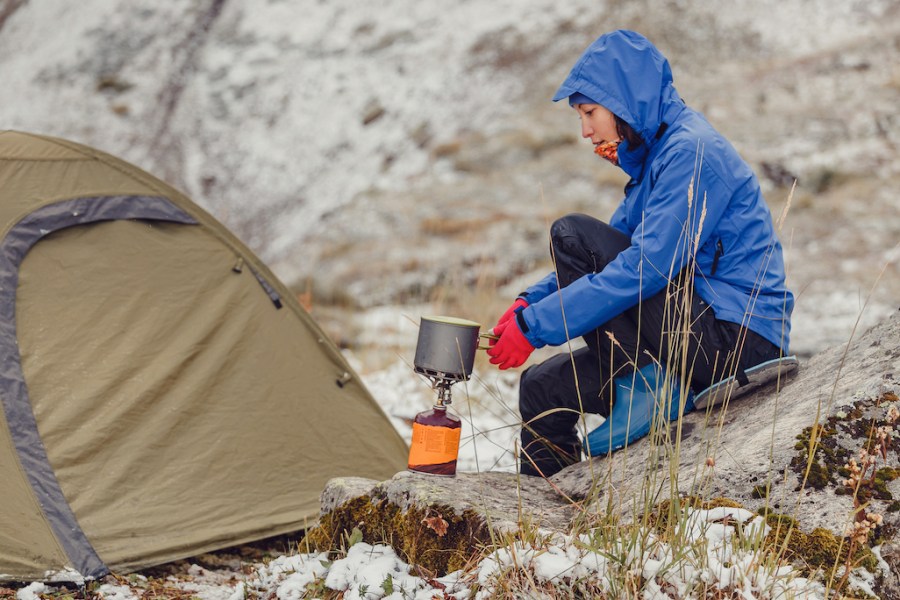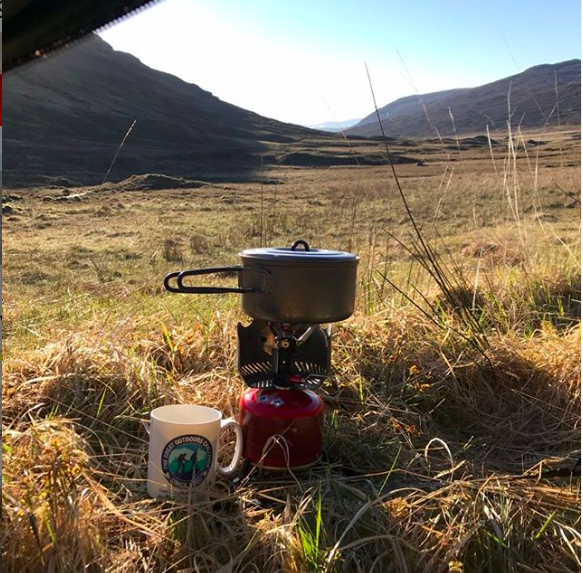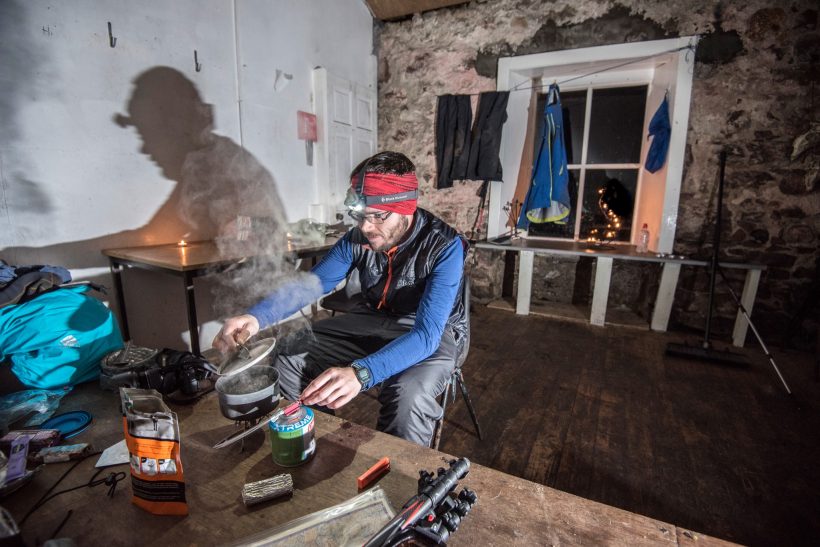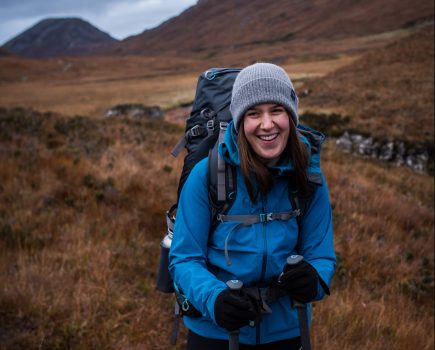During a long walk or backpacking trip, what you eat is more than just fuel – it also provides motivation, comfort and enjoyment. TGO Challenge coordinators Sue Oxley and Ali Ogden share their tips.
“Time for emergency goodies!” Ali says, as we both plonk exhausted down on the only rocks amidst a sea of rough ground. It has been a long, frustratingly energy sapping flog over a pathless ridge with a mass of tops that feel like they should be Munros but aren’t on anyone’s list. It has been a long, frustratingly energy-sapping flog over a pathless ridge. A little pouch is unzipped and out of it emerges chocolate and sharply zinging freeze dried raspberries. As soon as we swallow them down it feels like energy is spreading to our weary legs. The psychological boost is all we need to make another hour of flogging over peat hags to our intended camp seem doable.
Lightweight and luscious
Feeding yourself on a long-distance walk is something of an art form that needs patience and practice. There is an inevitable compromise needed between weight carried, the time it needs to stay fresh, and the calories required, that precludes the use of many fresh and juicy (ie heavy) foods. The holy grail is something that weighs only a few grams but sustains you throughout the day. Or is it?
DIY dehydration
In the past commercial dehydrated foods were far from palatable. We both remember, in the ’80 and ‘90s, eating what looked and tasted like partially rehydrated cardboard, sometime with the addition of an indeterminable artificial flavour. Food was one of the least enjoyable parts of backpacking. Prior to her first TGO Challenge in 2000, Ali invested in a home dehydrator. It made a world of difference. What could be better than venison casserole or mushroom risotto high on a hill? Smoked salmon kedgeree for breakfast anyone? It tasted, and just as importantly looked and smelled, like real food. We could choose our menu, and with minimal packaging it was lighter than commercial products.
Off the shelf options
In recent years commercial trail food has vastly improved. We now mix and match home cooked food with meals from Mountain Trails which we have loved ever since testing them for TGO a few years ago. Base Camp Food and TentMeals have also provided excellent service and a range of products to Challengers. It is important to find which brands and flavours suit you before heading off on a long trip. We learned the hard way. On the Southern Upland Way Ali was looking forward to tucking into a vegetable tikka. It was so unpalatable to the point where she couldn’t eat it. The following day she ran out of energy after only 10 miles and it took another (thankfully better) meal the following evening to get back to normal. Needless to say, it isn’t a brand either of us has returned to!
Squashed sandwiches, anyone?
Strangely we find there are foods we wouldn’t contemplate eating at home that we love in the hills. We remember sitting on Beinn Bheòil where we were joined by Challenge vetters Ann and Alvar Thorn. Discussions soon turned to food and what we craved in the hills. At that moment, four days out from our last resupply, Ali was dreaming of bread. “We’ve got some!” said Ann and dived into her pack re-emerging with several somewhat squashed pieces of four-day old sliced bread. It was manna from heaven and every mouthful, even without butter, was savoured.
Save the pounds
Millions are spent on sports foods and drinks, with some genuine research and a lot of pseudo-science behind the products. It certainly helps to know that fat and protein are more calorie-dense and satiating than the carbohydrates, but you need the carbs too. So if someone produces that lightweight all-in-one meal replacement for backpackers will we be buying it? Probably not – unless it tastes as good as one of our rehydrated casseroles!
Comfort food
Nutrition is of course important, but if you are eating a balanced diet for the rest of the year two weeks of eating what you enjoy and fills you up (allergies and intolerances allowing) isn’t likely to be a problem. Backpacking food is so much more than fuel – it’s role as motivator and comforter are just as important. We want to look forward to whatever we eat so to us sufficient calories and taste are the most important factors in what we choose. If it takes a little more time to prepare are a few extra grams in the pack, we think it is worth the effort to feel content at the end of the day.









